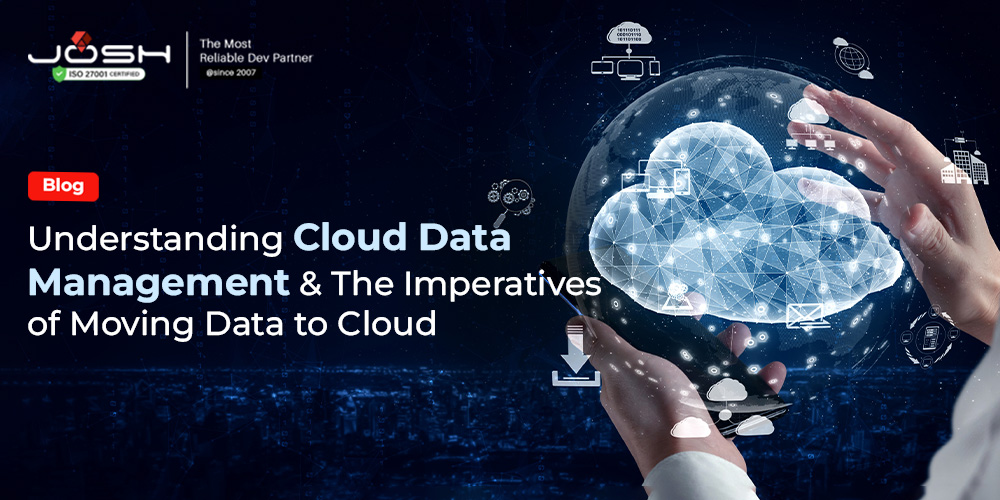Growing number of organizations are recognizing the importance of shifting workloads to the cloud. This mass migration of IT operations and applications to the cloud and cloud data management are gaining traction, as on-premise data storage now becomes a thing of the past.
With the cloud storage market predicted to rise at a CAGR of 20 percent by 2027, we can see waves of players jumping on the cloud bandwagon. As the aforementioned number is unlikely to see a downward trend, this article explores the most pertinent reasons why the concept of cloud data management is a much-needed solution in this digital age.
The Need to Move from Traditional to Cloud: Benefits of Incorporating Cloud-backed DMS

Cloud data management system (DMS) was first conceptualized by e-commerce giant Amazon in the form of Simple Storage Service — widely called S3. Since then, the concept of cloud storage has become ubiquitous across several business operations within companies, regardless of their business size.
The in-house management of data is still in use; however, as organizations collect and grow the volume of data every day, managing it becomes an insurmountable task. While traditional data management solutions remain prevalent across sectors, a cloud-first approach is required to stay ahead of the topsy-turvy economic situation we are living in today.
But how does the modern-day storage facility fare against the likes of its predecessor — traditional or on-premise storage local data storage? We discuss a few reasons below:
Managing Data Economically
Among the many reasons to consider employing a cloud ecosystem in your enterprise’s arsenal for cloud migration, its cost-effectiveness has become the most influencing factor. Enterprises with on-prem hardware as the medium to store and access data rely upon human resources — which is tedious and expensive in order to keep functioning.
Since cloud-based systems work on an enterprise’s existing facilities, the need to manage robust servers and onsite architecture reduce. This allows you to cut costs on frequent server maintenance, operating system updates, and power supplies.
Systematic Approach to Security
The early days of cloud adoption garnered controversial attention concerning the security of data. Fast forward to today, enterprises now see cloud DMS as the need-of-the-hour solution, courtesy of large bankable players entering the market. Cloud management solutions offer Fort Knox-like security options than the on-premise systems to safely store sensitive information and applications. With regular security updates, cloud providers ensure that your data is guarded against security threats.
Agility & Scalability
The most notable advantage of leveraging cloud management is its ability to upscale the capacity per the fluctuating traffic demands. It allows teams to seamlessly work together on application updates or address issues without having to depend on on-site solutions. With this dependency on age-old systems removed, enterprises can gain a competitive edge over their on-premise counterparts.
Concerns When Leveraging the Cloud for Data Management

Since the adoption of cloud data management solutions, enterprises have been able to cut down on numerous complexities and navigate through disaster recovery surrounding their data/document storage. The system, however, comes with its fair share of disadvantages too. Below we look at some of those:
Compromises on Privacy
Perhaps the most concerning link when onboarding data on the cloud is the relinquishing of data privacy controls. With third-party vendors managing the data, certain privacy controls can be compromised, thus propelling businesses to limit the volume of data stored or even completely avoid the use of the cloud.
More Technically Advanced, Fewer Resources to Handle
By leveraging the service of cloud service providers, you entrust them with the power of controlling your data. This means that in situations where the provider’s system misfires, your data meets the inevitable fate — the loss of all your data.
Going Cloud-Only is the Future

The challenges of managing data have increased manifold, as there is a great supply of data from innumerable sources in this tech-driven age. Enterprises are now cognizant of the drawbacks associated with data storage, further pushing them to adopt cloud data management systems.
As cloud computing strategies are being widely adopted across verticals, businesses must tap the capabilities of cloud service providers to level up their data security.

